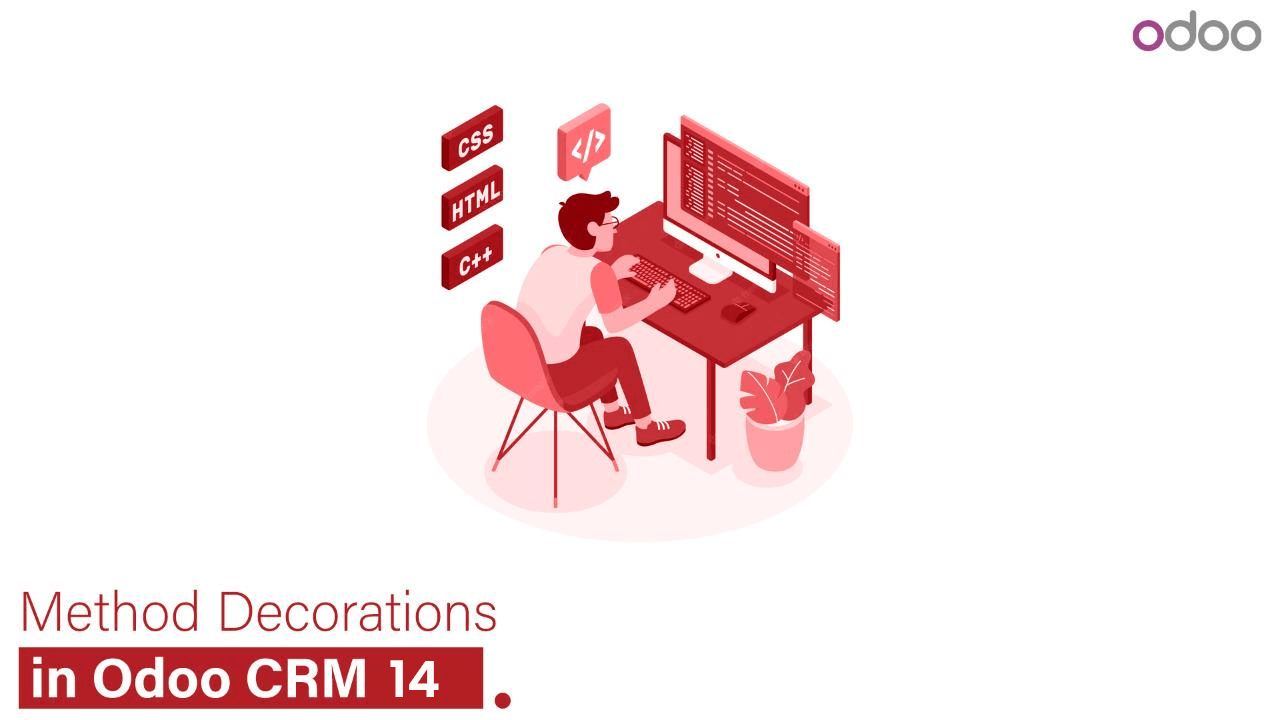
The method environment can be updated by use of decorators. It is useful for expanding a function’s properties or adding functionality to a process that has particular needs. These decorators specifically pass the method’s parameters. You can write functions easily and avoid complexity by doing this. InOdoo, decorators come in a wide variety that are classified as follows:
When a computation depends on additional fields, the depend decorator is used to extend the behavior of the field function. The balance field is a calculated field that additionally depends on the debit and credit fields, as demonstrated in the example. So, in order to compute a field, we can rely on numerous fields. As an illustration of the code:
@api.depends('debit', 'credit')
def _compute_balance(self):
for record in self:
record.balance = record.credit - record.debitWhen the contents of a method are irrelevant, this decorator is applied. In this case, the self is a set of records, and the model is more important than its data. As an illustration of the code:
@api.model
def _method_name(self, arg1, arg2):
# code hereWhen it’s necessary to modify the value of a field based on another field, this decorator is used. Other fields could be automatically updated based on the value of this field. Here is a code example:
@api.onchange('field1')
def _onchange_field1(self):
# code hereIn order for the constraint to be automatically validated whenever one of the included fields is altered, the decorator specifies which fields are included in the constraint. If its condition is not met, this procedure should produce an exception. As an illustration of the code:
@api.constraints('field1', 'field2')
def _check_field_values(self):
# code hereIt makes several records from a list of dictionaries. The approach can involve one list or several lists. As an illustration of the code:
@api.model_create_multi
def create(self, vals_list):
# code hereThe context dependencies of unsaved calculate methods are obtained by this method decorator. This method’s arguments are the code to the context dictionary. Here is a code example:
@api.depends_context('key1', 'key2')
def _compute_method_name(self):
# code hereapi.autovacuum is a trash collection technique used for techniques that don’t require a dedicated cron job. Here is an example of the code:
api.autovacuum()Decorators are a stylish approach to increase the original function’s functionality without altering the source code. Additionally, the decorator you define has the option of accepting parameters or reverting to a set of default arguments.
In conclusion, decorators are a powerful tool in Odoo 14 that can enhance a function’s capabilities and streamline processes. By utilizing the various types of decorators available in Odoo, businesses can optimize their workflows and improve efficiency. At Wan Buffer Services, we specialize in Odoo development and customization, and our team of experts can help you implement decorators and other features to elevate your business processes.Contact us today to learn more about our services and how we can help you achieve your business goals with Odoo.